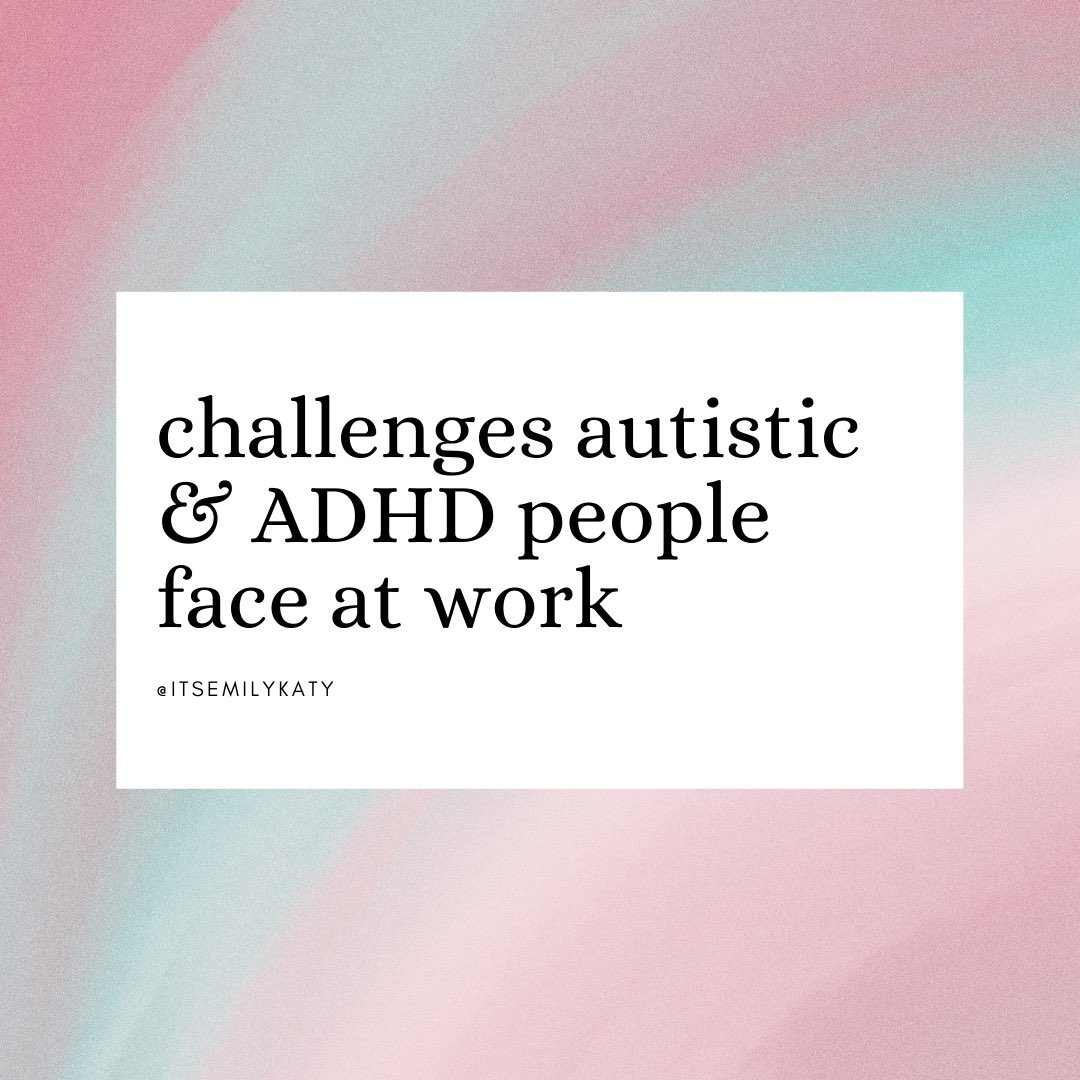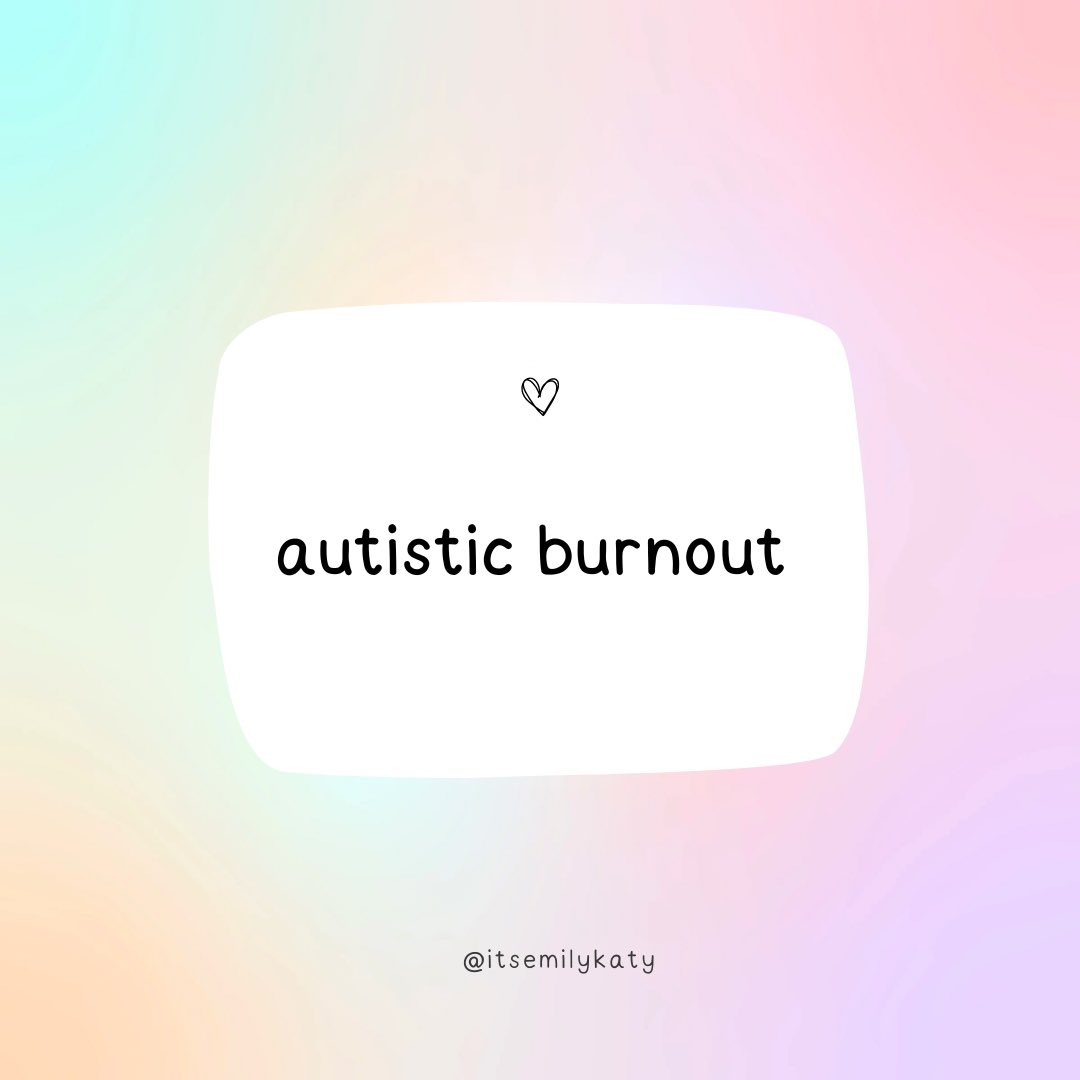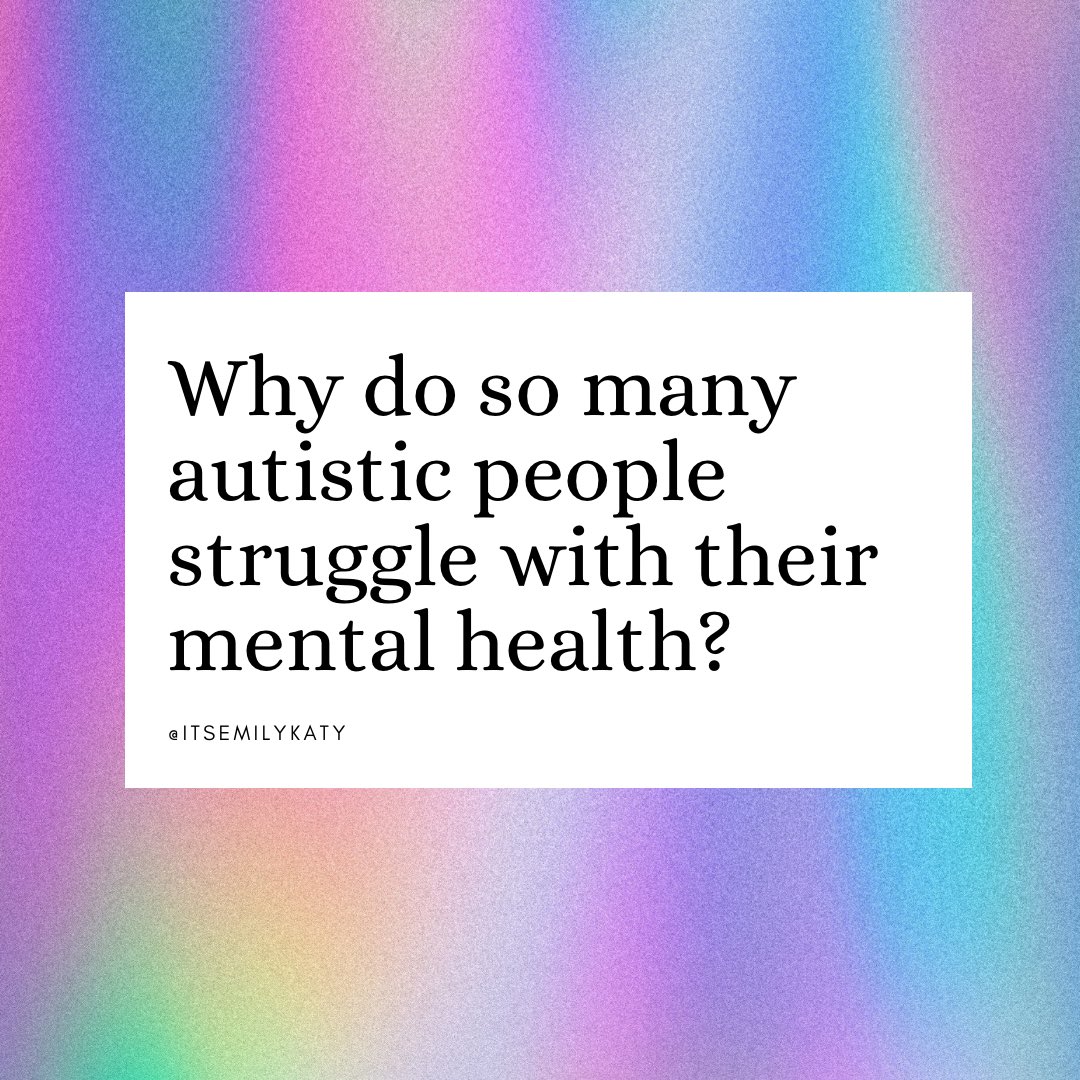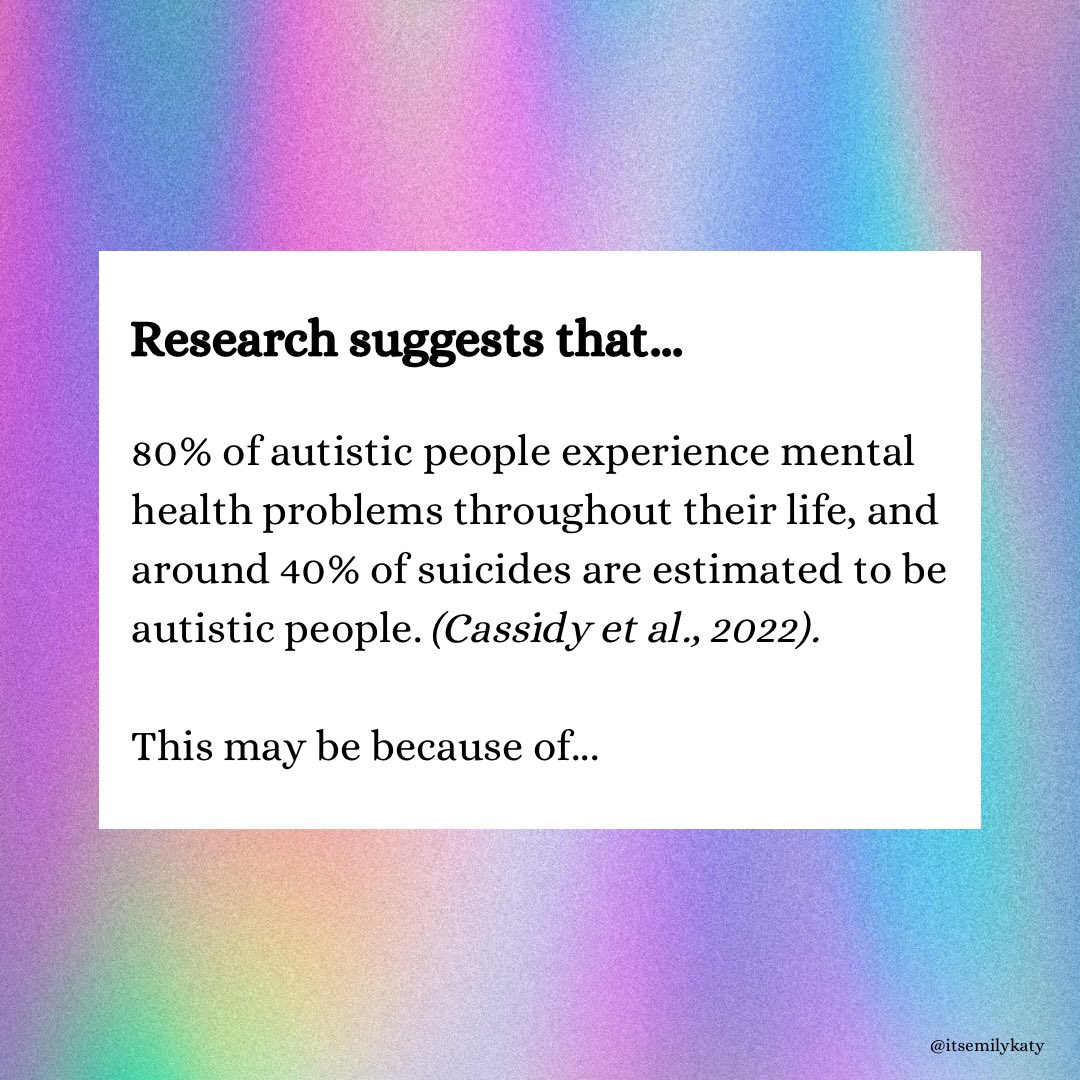I asked autistic and ADHD people what challenges they face at work and out of approx 1500 responses (thank you!!), these were the most common challenges, in order.👇🏻 

Challenges autistic and ADHD people face at work.
I am not surprised that navigating colleague relationships, the sensory environment and unclear instructions/communication took the top three places.
I am not surprised that navigating colleague relationships, the sensory environment and unclear instructions/communication took the top three places.

Stay tuned for part two of what people said would help them at work and a blog post summarising all this! ✌🏻
If you liked this thread, my book is available for pre-order now! 🫶 linktr.ee/girlunmasked

If you liked this thread, my book is available for pre-order now! 🫶 linktr.ee/girlunmasked

• • •
Missing some Tweet in this thread? You can try to
force a refresh























